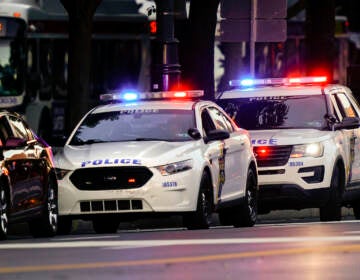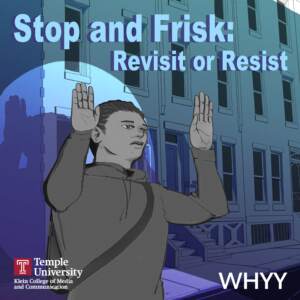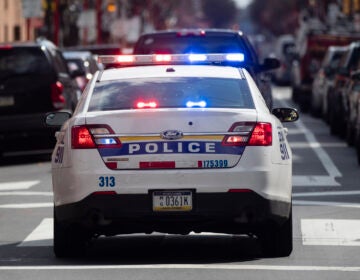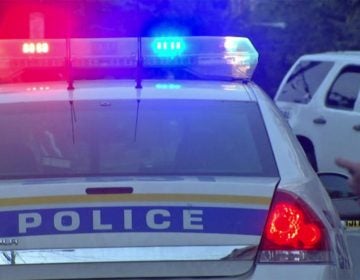Former Philly Mayor Michael Nutter stands by stop and frisk, despite being stopped by police multiple times
Nutter shares his personal experiences with being stopped, including during his time on City Council. He still supports the policy, as part of a broader policing plan.

Former Philadelphia Mayor Mayor Michael Nutter at the entrance to the Fashion District at 10th and Market streets. (Emma Lee/WHYY)
How do you feel about stop and frisk (and policing more broadly) as an answer to Philly’s gun violence crisis? Get in touch.
Former Philadelphia Mayor Michael Nutter can remember three distinct times he’s been stopped by a police officer: as a teenager, during his time as a City Council member, and two years ago. During the most recent time, Nutter said he was just around the corner from his Wynnefield home when officers approached his Mini-Cooper with hands on their weapons.
Nutter said, despite that traumatic experience, he still sees the practice of stop and frisk as part of a successful policing strategy.
When campaigning for mayor in 2007 he advocated for the controversial policing practice that has been disproportionately used to detain Black men, according to legal experts who’ve reviewed the policy’s history in Philadelphia.
Nutter believes stop and frisk can be effective when used as part of a comprehensive policing strategy that includes proper monitoring and supervision, while also holding officers who stop people without proper justification accountable.
The former mayor spoke with WHYY reporter Sammy Caiola and Yvonne Latty of Temple University’s Logan Center for Urban Investigative Reporting. Below is an excerpt of the interview that took place in October, it’s been edited for clarity.
Yvonne Latty: Have you ever been stopped by police?
Michael Nutter: Sure. I was stopped by police when I was a teenager, I was stopped by police when I was a member of City Council. I was stopped by police two years ago, a block and a half from my house. It was in my car. An officer said, I did something, I didn’t think I did it. Look, it is often not a pleasant experience. At all. You know, it’s two officers, one comes up on the driver’s side, the other’s on the passenger side. You know, driver’s license, registration, card. OK. The officer on the passenger side has his flashlight out and his hand on his weapon. And so, you know, I mean, I’ve seen this movie before. I’ve got my hands ten and two on the steering wheel. I say, Officer, my information is in my wallet. It is in my right back pocket. I’m going to get it for you, but I want you to know what I’m doing. And so in the most exaggerated, slow-motion fashion, I’ve got to lift my butt up, two fingers, get the wallet, get the information and give it to the officer. All the while, his partner is on the passenger side with his hand on his weapon. I’m a 60-something-year-old guy. At 6:00 at night, driving a Mini [Cooper]. Like, what do you think is getting ready to happen here? So no, I’ve never been thrown up against a wall, I’ve had to assume the position a couple times when I was a teenager. So, I’m fairly familiar with how uncomfortable it can be. And here’s the thing. You know, I was pretty sure I hadn’t actually done anything. Nobody’s looking for me. So, if you have a different life experience and maybe you’ve been in the system or had some other level of contact, I mean, there’s not a lot of nicety that goes with this sometimes. And in many instances, whether it’s a citizen, maybe talking a little much or the officer being agitated, at the end of the day both are probably afraid of each other. And all that really happens is it starts to escalate. ‘I’m not doing anything,’ ‘shut up!’ More words than that. Right. So you start getting that back and forth and it continues to ratchet up with each party becoming more and more agitated about what’s happening, and a “simple stop” can literally turn deadly, quickly. I have a pretty decent sense of what’s happening out there. But yeah, I’ve been stopped by the police. And I was literally a block and a half from my house where I was a district council member for 14-and-a-half years and I served as mayor for eight. And I was just another guy.
Latty: Wow. Well, thanks. Thanks for that. I think that’s just like the really complicated part of it, right?
Nutter: I guess I would say when you do take on the responsibility of being the mayor. And a million-and-a-half, a million-point-six, people depending on you, there are a lot of things that you have to weigh, there are a lot of things that you have to balance. But when all is said and done… I fundamentally believe that the most important, the most critical, the most essential function of any government is the safety of our citizens. Our constitution talks about domestic tranquility and people being safe. And if you don’t have that, then what do you have? You build all the tall buildings, you can have this program, that program, the other program. People are literally afraid in many instances to come out of their houses. They’re worried minute by minute about their children going to and from school or going to the store or going anywhere. As my mom used to always remind me, ‘son, bullets don’t have names on them. Be careful, be aware. Who are you hanging out with? Where are you hanging out?’ All of those kinds of things. And now, it’s all over the place. So, I mean, these numbers are just unacceptable.
Latty: Are you hopeful? Do you think things will turn around in the city?
Nutter: I think they can. I mean, look, I’m still a public servant at heart. I’m the eternal optimist. I believe they can. I don’t know exactly how. I mean, social scientists are still trying to figure out why we are where we are. We’re not the only big city in the country that has numbers going up. But there are some big cities in the country where numbers are going down. Ultimately, this is about leadership. It’s about focus. It’s about direction. It’s about understanding where people are. And at times saying some uncomfortable things that need to be said or doing some uncomfortable things that need to be done. I didn’t go down there to make friends. I went to do a job. Public safety is a big part of that job.
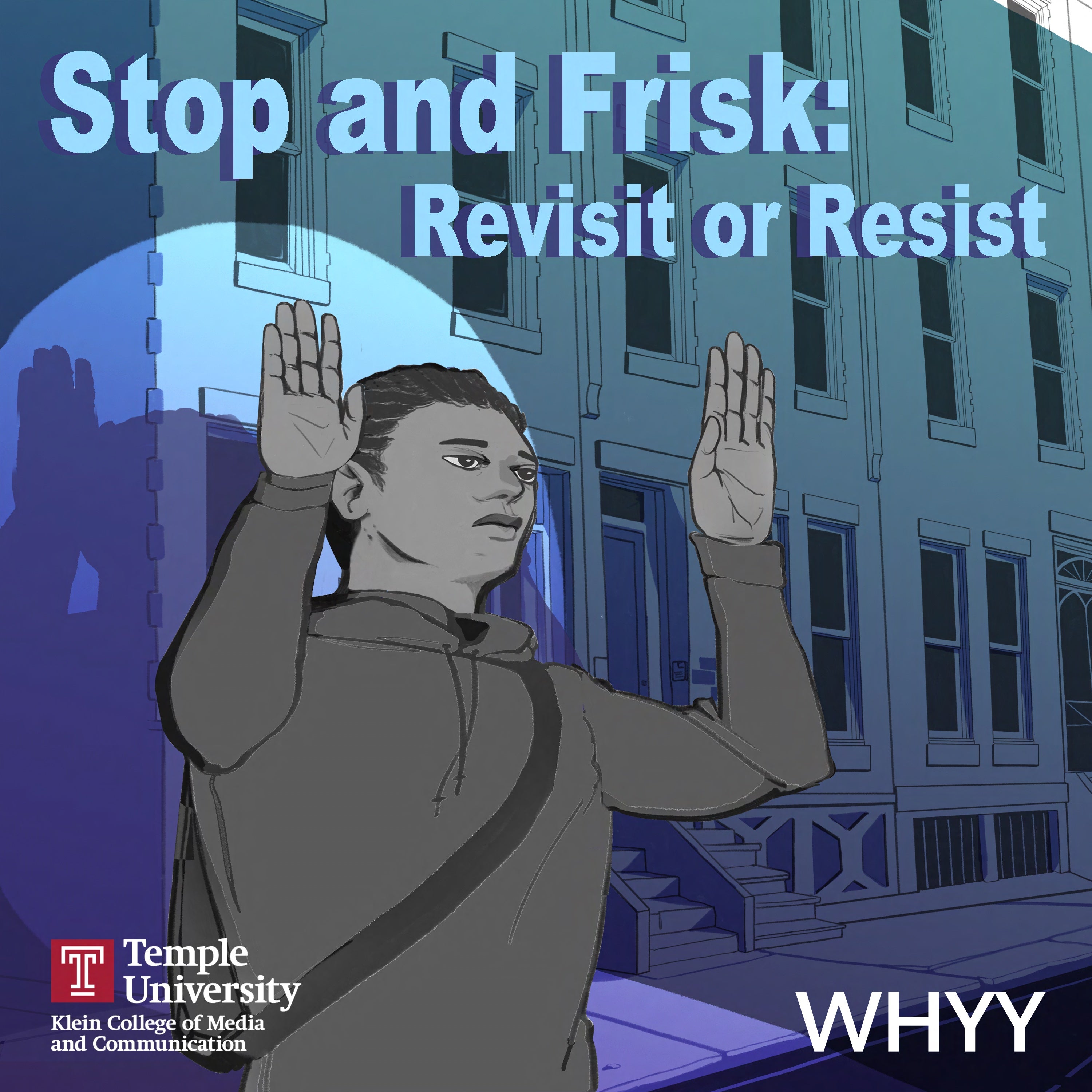
Stop and Frisk: Revisit or Resist
WHYY is your source for fact-based, in-depth journalism and information. As a nonprofit organization, we rely on financial support from readers like you. Please give today.



